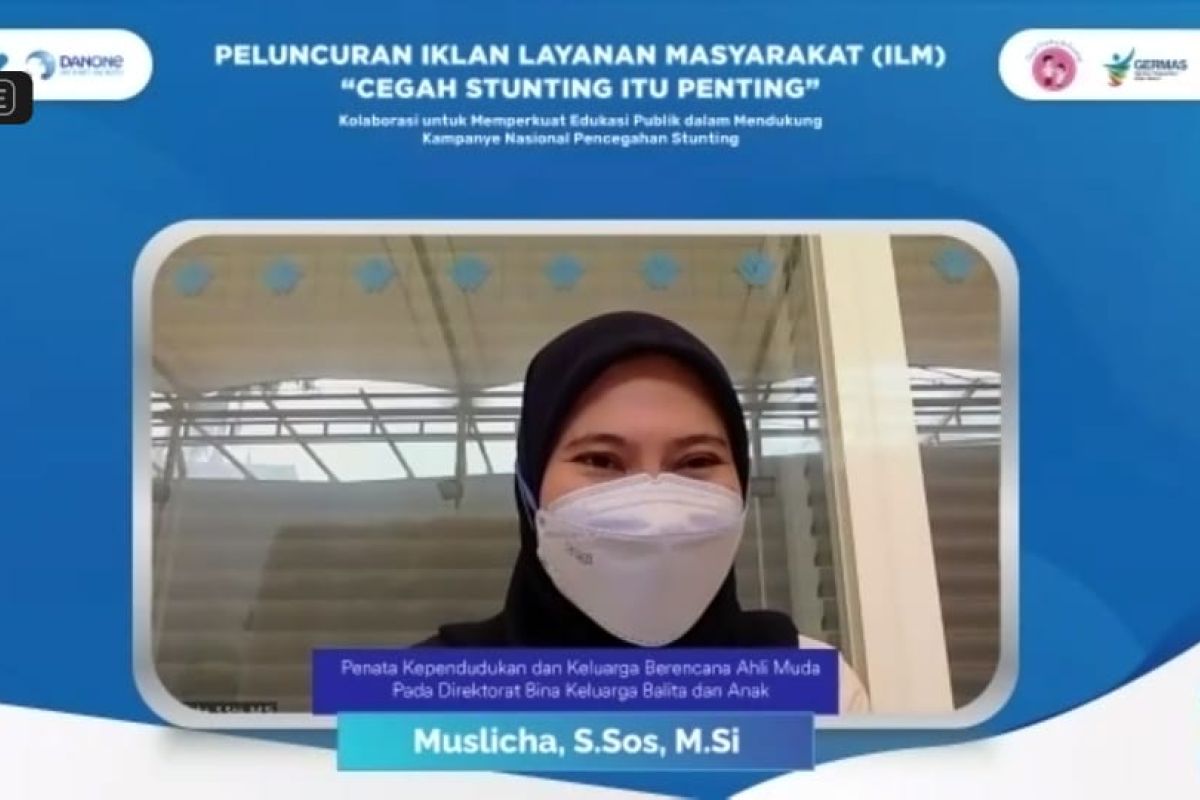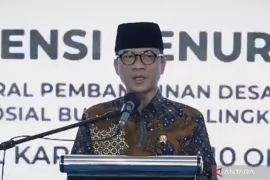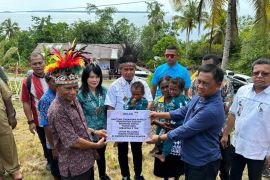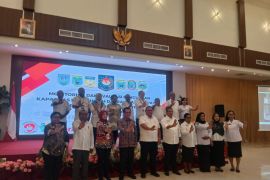Education has become an important pillar for stunting prevention in Indonesia, Muslicha noted during an online media briefing on Monday.
To this end, the government and the agency are continuing to raise awareness among families about stunting through the dissemination of information and provision of education to people about simple steps that can be taken every day to reduce stunting.
"The expectation is that it can change behavior, which will contribute to the reduction in the stunting figure in Indonesia," she said.
"Families' knowledge about stunting is still lacking, which is important to fix for the empowerment of quality humans," she added.
The government is aiming to reduce stunting prevalence to 14 percent by 2024. This has also been mandated through Presidential Regulation (Perpres) No. 72 of 2021 on stunting reduction acceleration.
"Actions taken by us and related parties are based on Perpres No. 72 of 2021, in which there are already five national strategies on stunting prevention acceleration," Muslicha said.
The five pillars include national and regional leadership vision and commitment, behavioral change and people empowerment communication, as well as specific and sensitive intervention convergence at the central and regional levels.
The pillars also cover food and nutrition resiliency as well as system, data, information, research, and innovation bolstering and development.
In addition, the BKKBN has issued the National Population and Family Planning Agency Regulation No. 12 of 2021 on the national action plan for stunting figure reduction acceleration in Indonesia during 2021–2024.
The scope of the regulation encompasses the stunting reduction acceleration national action plan; the stunting reduction acceleration implementation mechanism; as well as monitoring, evaluation, and reporting.
The Stunting Reduction Acceleration Strategy involves the implementation of priority actions within the stunting reduction acceleration national action plan.
These priority activities comprise the collection of data on and provision of assistance to at-risk families.
They further include assistance to all fertile future couples, surveillance of at-risk families, and stunting case audit.
They also cover planning and budgeting; stunting reduction acceleration activities’ accountability monitoring and guidance; as well as monitoring, evaluation, and reporting.
"These regulations serve as a guideline so that the policies align for all parties, which can help in the effort to reduce stunting,” Muslicha said.
Related news: Education on nutrition crucial for preventing stunting: BKKBN
Related news: BKKBN asks teenagers to plan their future carefully
Translator: Arnidhya Nur Z, Fadhli Ruhman
Editor: Rahmad Nasution
Copyright © ANTARA 2022












